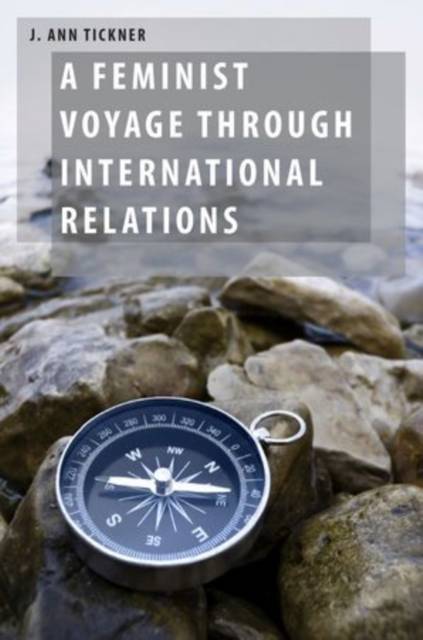
- Afhalen na 1 uur in een winkel met voorraad
- Gratis thuislevering in België vanaf € 30
- Ruim aanbod met 7 miljoen producten
- Afhalen na 1 uur in een winkel met voorraad
- Gratis thuislevering in België vanaf € 30
- Ruim aanbod met 7 miljoen producten
Zoeken
Omschrijving
J. Ann Tickner is ranked among the most influential scholars of international relations. As one of the founders of the field of feminist international relations, she is also among the most pioneering. In many ways her academic career has traced the development of the feminist subfield of IR, and it is no overstatement to say that the field today would look much different without her groundbreaking contributions. A Feminist Voyage through International Relations provides a compendium of Tickner's work as a feminist IR scholar, from the late 1980s through today. The book addresses the issue of methodology in feminist IR and the continuing challenge from traditional IR scholars that feminists don't perform legitimate scientific research. Tickner introduces and contextualizes her previous writings with new essays that trace her intellectual development as a feminist scholar. The chapters consider the introduction of women and gender into the conversation about IR, as well as feminist methodological interventions and conversations with the IR mainstream. The final section of the book includes some of Tickner's later writings on topics including race, imperialism, and religion.She ends with thoughts on the present currents of feminist IR and its place within the wider discipline. Given the way that her career has mirrored the evolution of the subfield, Tickner's book provides a methodological and epistemological story of feminist interventions in IR and a thoughtful refection on where the field is headed in the future.
Specificaties
Betrokkenen
- Auteur(s):
- Uitgeverij:
Inhoud
- Aantal bladzijden:
- 240
- Taal:
- Engels
- Reeks:
Eigenschappen
- Productcode (EAN):
- 9780199951260
- Verschijningsdatum:
- 4/03/2014
- Uitvoering:
- Paperback
- Formaat:
- Trade paperback (VS)
- Afmetingen:
- 155 mm x 231 mm
- Gewicht:
- 317 g

Alleen bij Standaard Boekhandel
+ 174 punten op je klantenkaart van Standaard Boekhandel
Beoordelingen
We publiceren alleen reviews die voldoen aan de voorwaarden voor reviews. Bekijk onze voorwaarden voor reviews.







